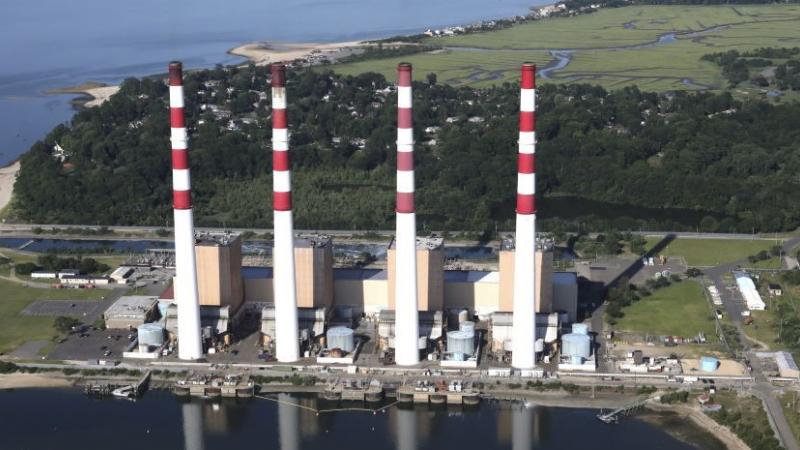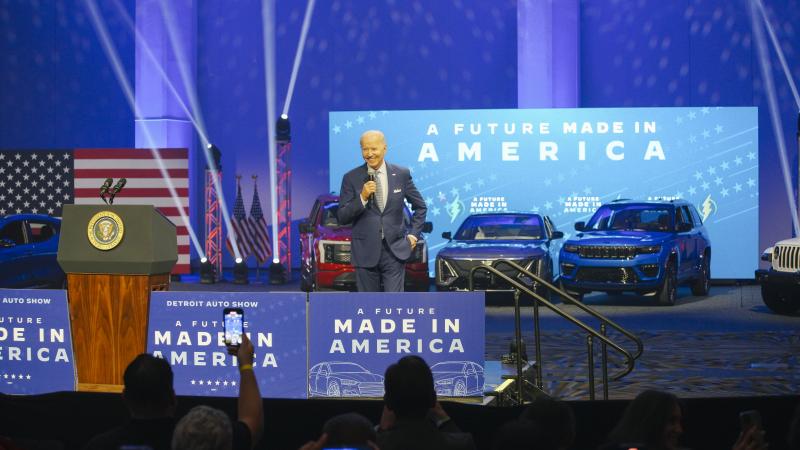Indiana looks to become a nuclear power state, OKs small modular reactors
Legislature approved bill directing Indiana Utilities Regulatory Commission to adopt rules for granting certificates for the construction, purchase or lease of small modular nuclear reactors.
One or more power companies in Indiana will soon be able to request to use small nuclear reactors to generate power and to begin charging customers to pay for them.
Both the Indiana House and Senate have approved a bill that directs the Indiana Utilities Regulatory Commission to adopt rules for granting certificates for the construction, purchase or lease of what are called “small modular nuclear reactors.”
Small modular nuclear reactors, or SMRs, are defined in the bill as nuclear reactors that generate no more than 350 megawattts of power. They aren’t actually on the market yet and no power company in the United States is currently using them to produce nuclear power.
They are being developed by a company called NuScale Power, based in Portland, Oregon. NuScale is the first company to get design approval for small reactors from the Nuclear Regulatory Commission. The reactors are designed to be able to work alone or in a cluster to meet the needs of a particular project.
There’s only one project in the county under development that will be using the small modular nuclear reactors – in Idaho – but it’s still in the early stages.
“They haven’t poured a single piece of concrete yet,” says Kerwin Olson, the executive director of Citizens Action Coalition, a consumer group that frequently opposes utility rate increases.
Olson testified in opposition to Senate Bill 271 in January at a hearing before the Senate Utilities Committee, and his organization is now asking the governor to veto it.
Olson said the bill allows power companies in Indiana to immediately start charging customers for planning and construction of a nuclear power plant that may not actually be up and running for several years.
“To us, 271 wasn’t about whether you support nuclear energy, it was about who should bear those costs,” he said this week.
Investors, he said, won’t finance nuclear power, so power companies work with states to allow them to charge customers.
“These are such risky and speculative ventures that utility companies themselves and Wall Street are not willing to invest in,” he says. “Customers pay for utility services. They should not have to give interest-free loans to utility companies.”
SB 271 was described differently by its author, Sen. Eric Koch, R-Bedford, who told the Senate Utilities Committee in January the bill, “will create a framework for Indiana, if it so decides, to move into the world of small modular nuclear reactors.”
He called it only a “siting bill” that will allow the state to decide where such plants might be located.
Indiana doesn’t have any nuclear energy production currently, but the large D.C. Cook Nuclear Power Plant in Michigan, on the shores of Lake Michigan, generates power that services many customers in northern Indiana. The plant is owned by Indiana Michigan Power.
Koch noted SB 271 directs the commission to take into account whether a facility using SMRs will replace a power plant no longer in use, and can therefore take advantage of the existing connection to the power grid, the already-established perimeter around the plant, and also a workforce that, Koch said, can be retrained to become a “nuclear workforce.”
The Biden Administration testified in support of the bill, saying the Department of Energy considers nuclear energy a source of clean energy.
In the United States, nuclear power provides almost 20% of the electricity used. There are more than 500,000 people in the United States working in the nuclear energy industry, with salaries that are 50% higher, on average, than other utility jobs.
SB 271 is expected to be sent to Gov. Eric Holcomb for his signature in the coming weeks.















